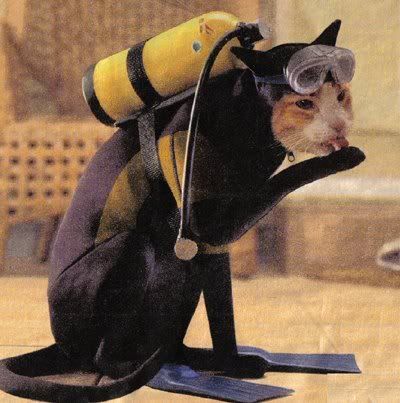Don,
Just as an aside: Why does it not suprise me that in addition to all the equip you also dive with your own doc/gas specialist?
Congrats though, I personally thought you were tilting at windmills. Nice work!
Just as an aside: Why does it not suprise me that in addition to all the equip you also dive with your own doc/gas specialist?
Congrats though, I personally thought you were tilting at windmills. Nice work!





